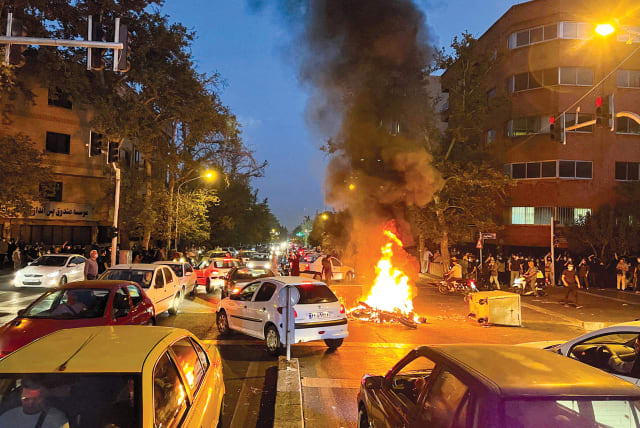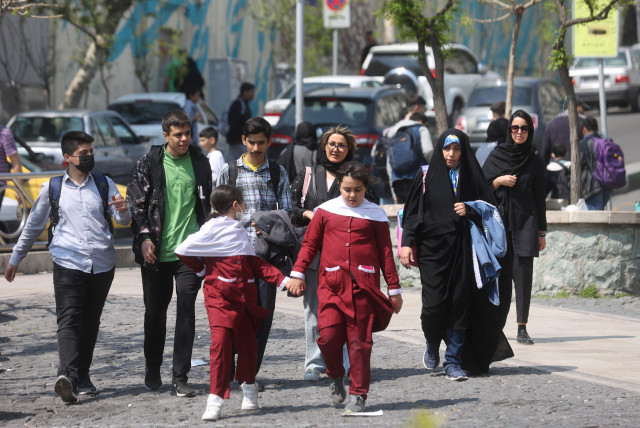'Gender apartheid': UN slams Iran's modesty laws, one year to Amini's killing

The UN said that this is "gender discrimination designed to bring the women of Iran into complete submission."
September marks the one-year anniversary of the death of Mahsa Amini, a young Kurdish woman who was caught in Iran without a head covering and was beaten by police, ultimately succumbing to her wounds.
Her death ignited widespread protests in the country during which many women and girls removed their head coverings in public, in violation of the laws of modesty.
The demonstrations were suppressed by the government with great violence that included mass executions of demonstrators, and now the administration is working to increase the punishment for violating modesty laws.
A new draft law that would officially impart harsh punishments for women and girls who fail to wear a hijab in Iran could amount to “gender apartheid,” UN experts said in a statement released Friday.
“The draft law could be described as a form of gender apartheid, as authorities appear to be governing through systemic discrimination with the intention of suppressing women and girls into total submission,” the statement said.
This law that was recently voted on by the parliament in recent weeks will sentence women caught in public spaces without a necessary head covering five to ten years inprisonment. Along with this, it will be possible to impose a fine of up to 360 million Rials (about 8,500 dollars), Maariv reported. So far, this offense has resulted in prison sentences of a few days to two months and a fine of 50-500 thousand Rials.
'Death to the dictator'
Last May, after the people of Iran learned of the execution of Majed Kazemi, Said Yacoubi and Saleh Mirashmi, three anti-government protesters who had been imprisoned, they took to the streets in several cities in the country. Many protesters cheered against the Revolutionary Guards. Among other things, the demonstrators chanted slogans against the government, burned government symbols and emphasized that they are "determined to overthrow the Islamic Republic".
Protestors in the Iranian city of Usafia were heard shouting "death to the dictator" and "death to Khamenei" in the streets, in protest of the execution of the three demonstrators. Protestors in the streets of Tehran, protesters against the Revolutionary Guards were heard calling for the execution of Khamenei.
The professional organizations of educators in Iran also issued a statement saying: "Don't scare us with death and executions, we have never been so determined to protect our lives and our youth. They tell the people to 'choke'. It's just that they are not aware of the fact that not only did we not suffocate from the execution machine of the government, but we will create another riot."
Jerusalem Post Store
`; document.getElementById("linkPremium").innerHTML = cont; var divWithLink = document.getElementById("premium-link"); if (divWithLink !== null && divWithLink !== 'undefined') { divWithLink.style.border = "solid 1px #cb0f3e"; divWithLink.style.textAlign = "center"; divWithLink.style.marginBottom = "15px"; divWithLink.style.marginTop = "15px"; divWithLink.style.width = "100%"; divWithLink.style.backgroundColor = "#122952"; divWithLink.style.color = "#ffffff"; divWithLink.style.lineHeight = "1.5"; } } (function (v, i) { });

